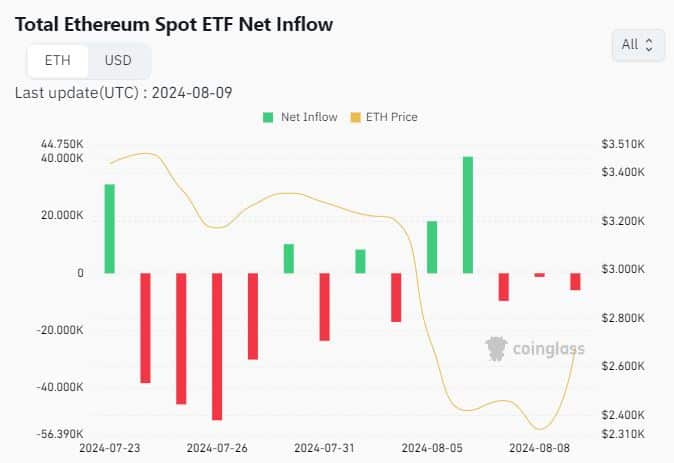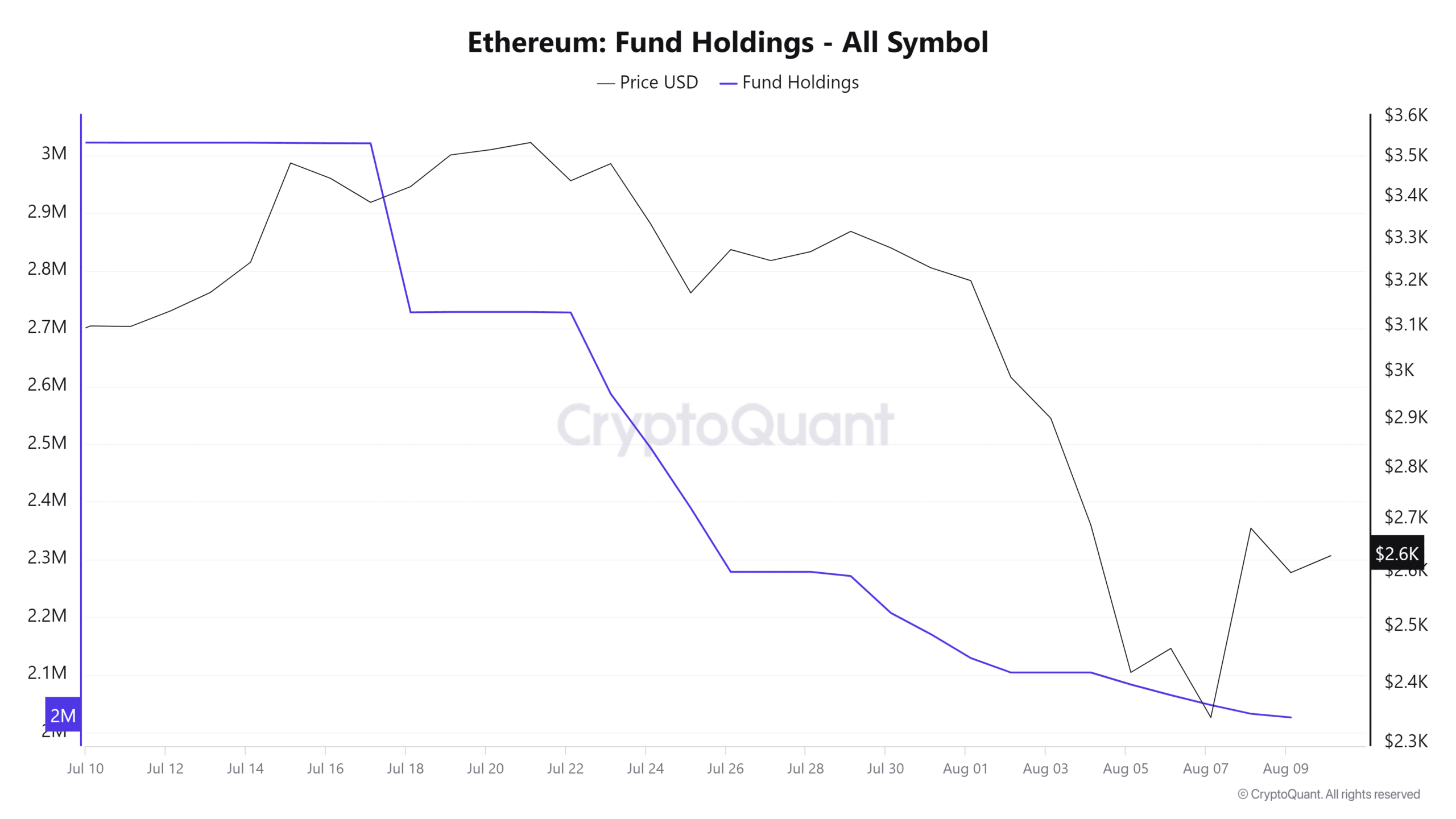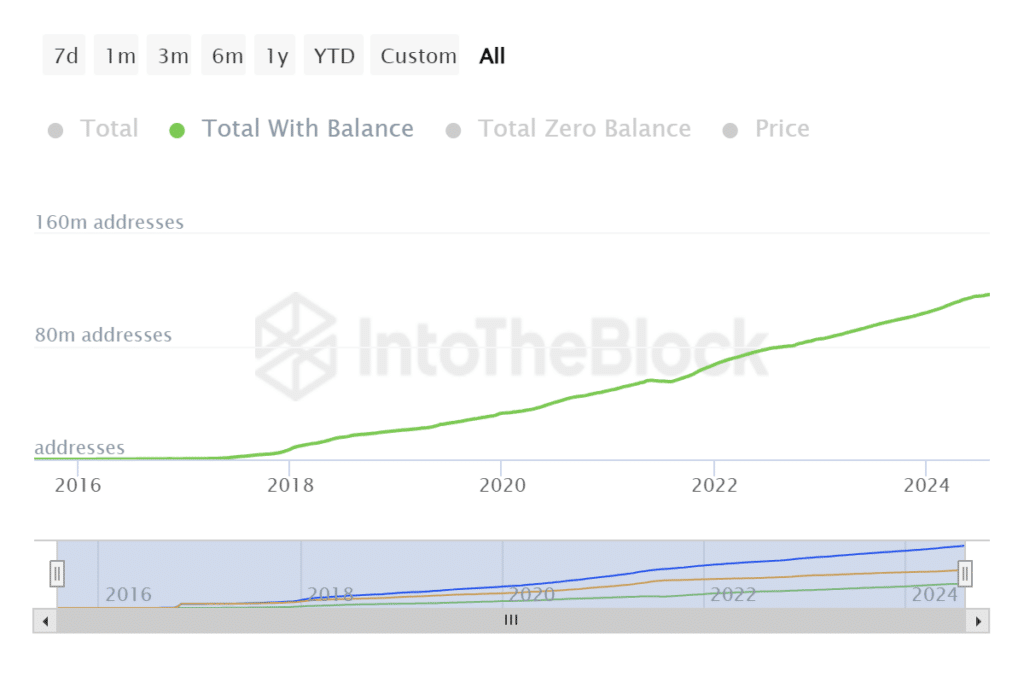- Ethereum lags behind Bitcoin in terms of demand from institutional investors
- However, Ethereum retains a strong lead over Bitcoin in one key area
Spot Ethereum ETFs may have brought some excitement to the market, but the hype doesn’t come close to what we’ve seen with Bitcoin. This is an outcome that is in line with a push for Bitcoin from the political elites.
While the observation underlines how Bitcoin is eclipsing Ethereum, could the latter also have a liquidity disadvantage? In fact, a recent one QCP analysis suggested that Ethereum may be sidelined from the macro capital markets while the market continues to favor Bitcoin.
Since both Bitcoin and Ethereum are available as Spot ETF assets, a performance comparison can provide a clearer picture of the performance differences.
Bitcoin ETFs net flows according to Coinglass, an average of almost 300,000 BTC in the past two weeks. Meanwhile, Ethereum had a total spot ETF netflow of -114,350 ETH.


Source: Coinglass
The data showed stronger demand for Bitcoin, compared to ETH in the spot ETF segment.
Our assessment showed the same for plan assets. According to CryptoQuant, ETH fund holdings amounted to 2,026,328.5 ETH, worth $5.32 billion at ETH’s press time price.


Source: CryptoQuant
Here it is also worth noting that ETH fund holdings were still in a downtrend at the time of writing, despite the market recovery.
Meanwhile, Bitcoin fund holdings amounted to 280,951.35 BTC, which at the time of writing was worth $17.07 billion – just over three times more than ETH. This is despite the fact that investments in BTC funds have also decreased over the past four weeks.
A fair comparison?
The aforementioned data confirmed that Bitcoin is more preferred than Ethereum in the capital markets.
This could explain why funds hold more in Bitcoin than Ethereum. However, Ethereum is also gaining in other important areas. For example, it has a much higher total number of addresses with a balance of 116.97 million.


Source: IntoTheBlock
By comparison, Bitcoin had a total of “only” 52.67 million addresses with a balance – less than half of the total number of Ethereum addresses.
This highlighted one of Ethereum’s strengths as a growing ecosystem. Perhaps one of the biggest reasons Ethereum recently received Spot ETF approvals.
There’s no doubt that Bitcoin’s early lead over Ethereum provides a clear advantage. However, Ethereum also presents an opportunity that the institutional investor class is beginning to embrace. Furthermore, Ethereum ETFs are only a few weeks old, while Bitcoin ETFs have been around for months.
The remaining months of 2024 should provide a clearer picture of how Ethereum will fare in the macro capital market. Nevertheless, the findings confirm that Ethereum is somewhat at a disadvantage compared to Bitcoin when it comes to securing institutional liquidity.
It could also explain the differences between the price action of BTC and ETH.

